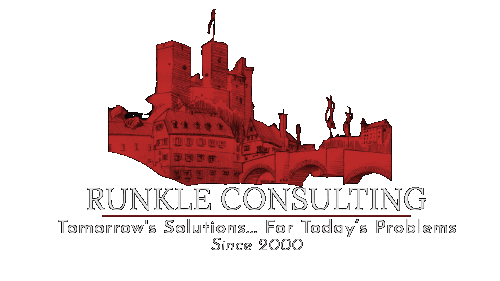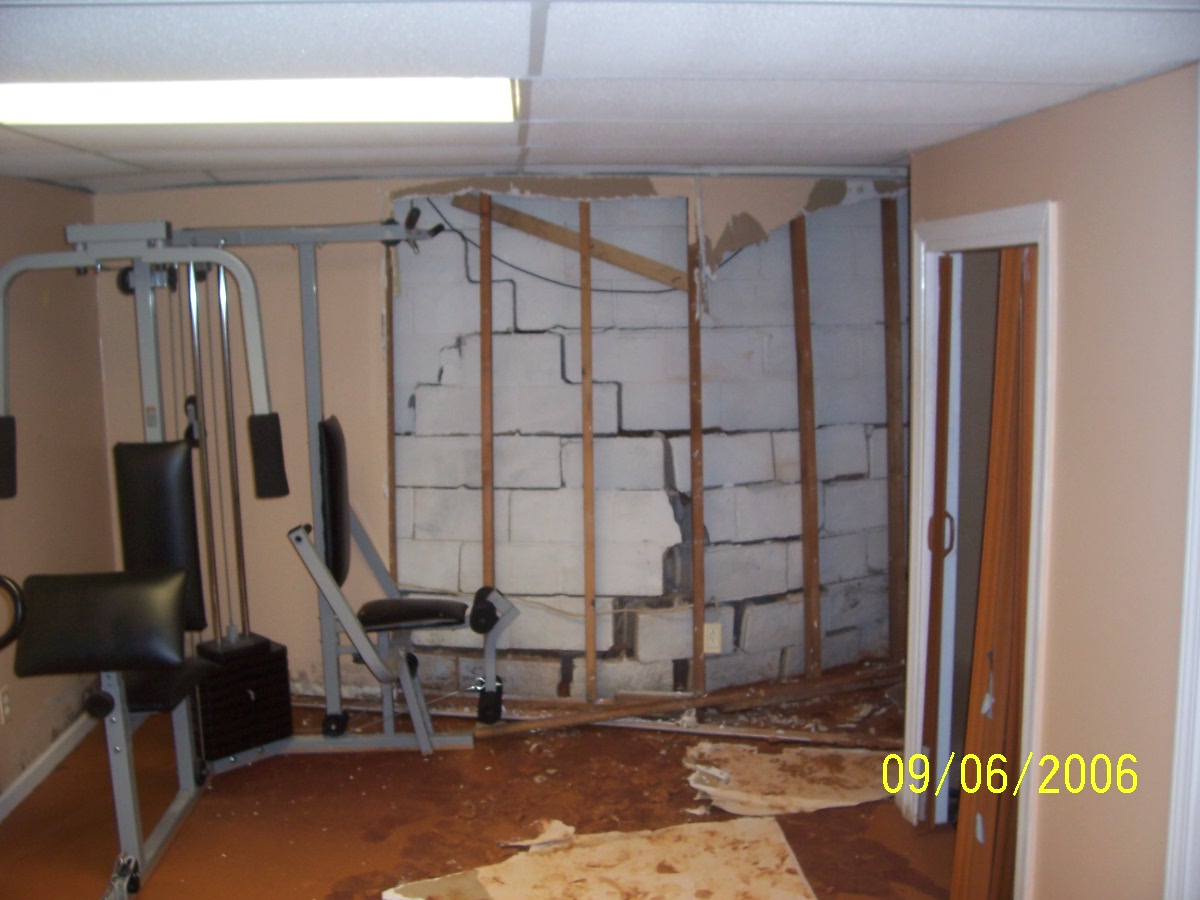The Dream…
I have this nightmare that repeats itself over and over again. It is slightly different, but the theme is the same for each one, and I wake up shaking. It’s not about my time in the Middle East, or any of the horrific things I’ve seen, it’s more mundane that makes it so terrifying. The dream is about an awful house that I can’t get out of, and the worst thing is it can really happen.
The dream setup is always the same. For some reason I’ve moved out of the Atlanta area to some area I lived in my past. Sometimes its the Pittsburgh area, sometimes it’s New Jersey, and other times its the house where I grew up in the Washington DC metropolitan area. It’s always a house that I lived in before, but it’s in really bad shape. I’m not talking about a crack in the floor slab. I’m talking about major foundation failure, termite infestations that have destroyed the framing, rot from leaking roofs and windows.
In each case, the house problems are so bad that the building is borderline unliveable. There is a real danger for catastrophic collapse, and the house smells horrible from all the rot. It gets worse. In the dream I don’t have money to fix the house. I owe more on the house than it is worth. I am left with the a couple of horrible options:
- Keep living in the house even though it is becoming uninhabitable and is likely to have some serious failures, soon.
- Turn the house over to the lender and walk away. That leaves my credit ruined and I have nowhere else to go.
Somewhere around that realization, I wake up. Do you know what the worst thing is about this dream? It can happen. I have evaluated a lot of houses that should be demolished, but people are buying. They will be stuck with a barely livable house that they may not be able to get rid of, and they can’t afford to repair. There were a few foreclosures that I looked during the Great Recession that I am sure that was what happened.
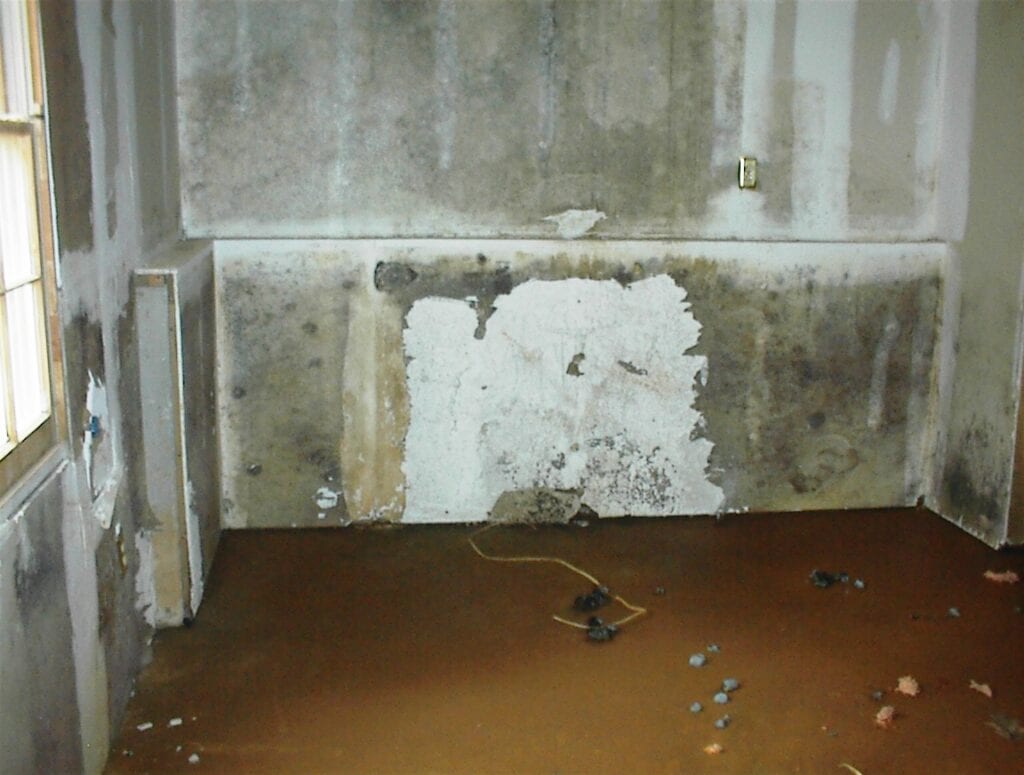
With expensive repairs you likely won’t have money on hand to get them done. That means a home equity loan. If the house is in real bad shape, you won’t have the equity in the house to get the loan to fix the house, which is a reinforcing downward spiral. Fortunately, most houses don’t get catastrophic failures. However, trying to live in a house that smells like rot, has mold issues, huge cracks, and sloping floors is anything but pleasant. In fact, the mold issues that can come from a house with problems can be dangerous to your health.
Avoiding the Bad Dream
As of this writing, the Real Estate market is a “sellers market” in there is less inventory than demand. Houses are selling within days, and I suspect buyers are so desperate that they are buying houses without seriously looking at what they are getting into. In time (and maybe when you read this), the market will balance out. There are going to be a lot of homeowners that will be stuck in the nightmare I’ve outlined. Don’t let this be you. There are some easy steps to avoid this:
Don’t Fall In Love With The House
- A house is an inanimate object. It is a place to live. No house should be your “dream home”, unless you want that dream to be a nightmare. “Love” is an emotion, and not always rational. If love was rational, my wife would never have married me. In my case, that’s a good deal since I don’t deserve her. For a house it’s not. That house will not return your love, and you need to use your rational brain, not your emotional brain to look at it.
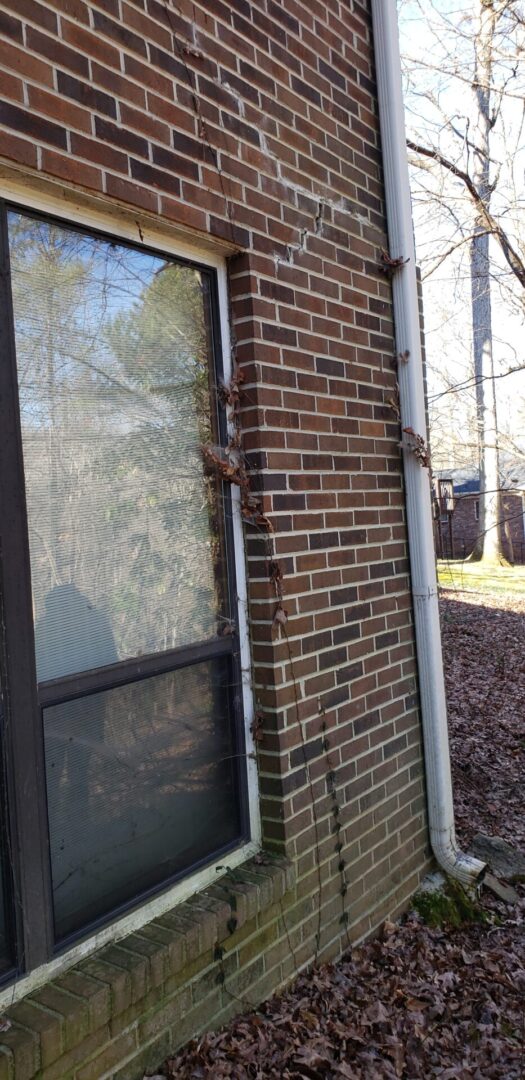
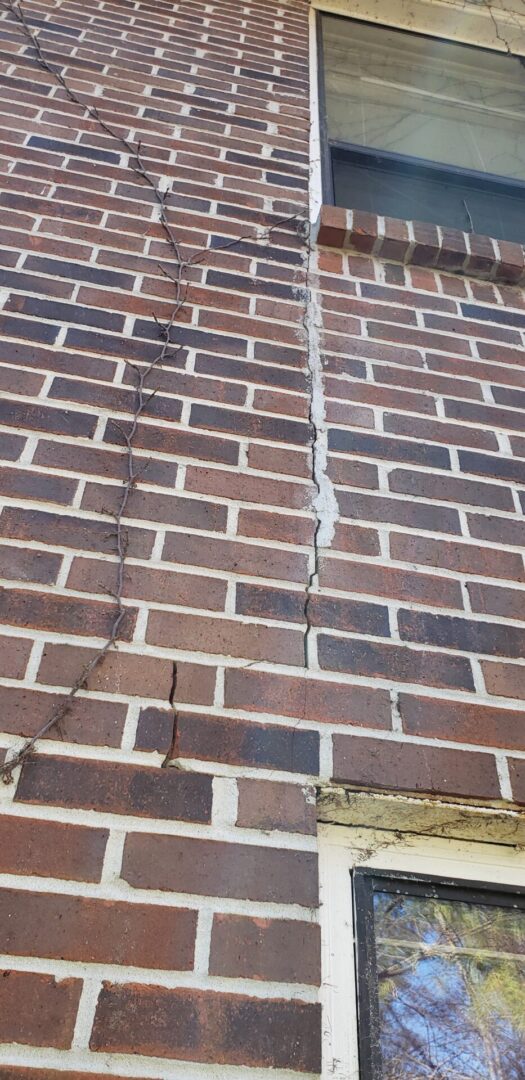
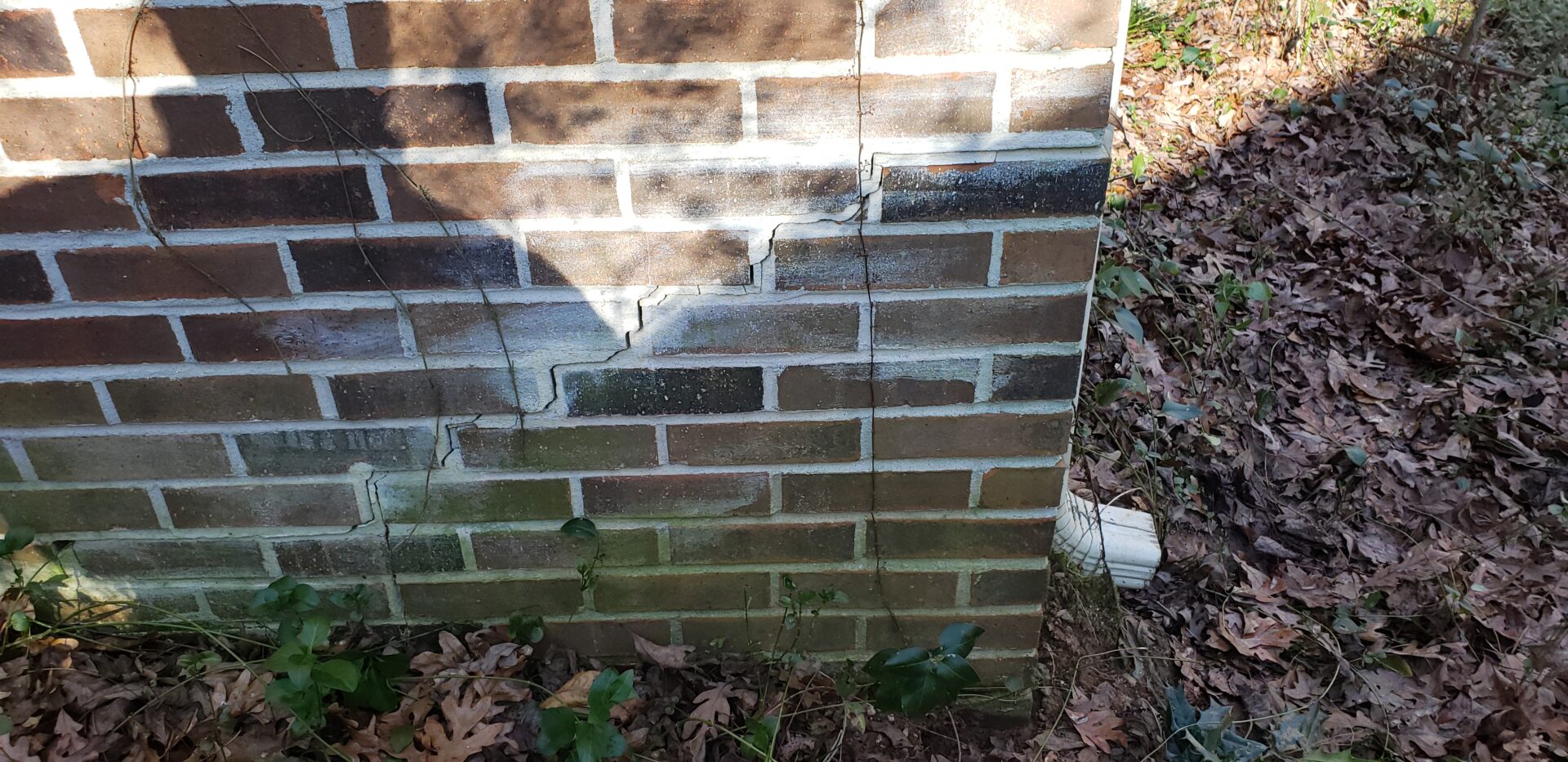
This house was particularly bad with serious settlement everywhere. My advice to the buyer was “RUN!” Somebody actually bought this house.
Years ago I looked at a house that was in horrid shape. The foundation had major settlement issues that the seller covered up by filling and painting over cracks, the basement floor was seriously settling and the seller covered that up by pouring a thin layer of concrete over it. On top of that, the wood framing had serious structural issues. The buyer was a real estate broker (a very successful one at that), and she kept berating herself. She “fell in love” with the house, imagining how wonderful it would be for her family to gather at, her grandchildren to stay in, and all that stuff. The woman knew better, it really bothered her that she knew better but didn’t. She specifically said that her biggest mistake was falling in love with the house. I never forgot that.
Get A Home Inspector
- I have been stupid when buying a house and didn’t hire a home inspector. Why, I’m an engineer, aren’t I? Don’t I have lots of accredidations? I have years of experience in all sorts of projects. I have advanced degrees that show how smart I am. So what. I didn’t know anything about residential construction, or what problems homes typically have. When buying a house, I was dumb as anyone else. I only came to understand that when I got into residential construction and started to learn how little I knew.
I’m not a home inspector, so this is not any kind of self promotion. A few hundred dollars with a good home inspector can save you an amazing amount of money. A home inspector can be an engineer, but is not always an engineer. It isn’t really necessary for a home inspector to be an engineer, what is necessary is the inspector should have good general knowledge of home construction and maintenance. A good home inspection takes a few hours, and you should be present with the inspector.
What is critical with getting a home inspector is getting one that is qualified. Before the Recession in 2007, everyone wanted to be a home inspector. Here in Georgia there is no licensing system for them, so it seemed that everyone that hated their day job would take a two week course at some “institute”, and attempted to start home inspecting. The desperation of these people was amazing. They would wrap their cars with vinyl advertising, try to sell advertising on their websites, hang out with a desperate look at every business networking event. It was kind of sad really. You could get an inspection from them for as little as $200.00. The problem was, you got what you paid for. A lot of inspections I saw were worthless. They honed in on stupid stuff, and missed major problems. I’ll cover this more in another post in depth.
Fortunately, there are ways to find a good home inspector. There is the American Society of Home Inspectors (ASHI), and here in Georgia, the Georgia Society of Home Inspectors (GAHI). Both societies have strict educational and experience requirements for membership, as well as the requirement for insurance (professional liability and general liability).
Sometimes You Need an Engineer
In some cases, you need to also get an engineer. This blatant self-promotion, but what’s the point of writing this post if I don’t do that? Many times a home inspector will find something that an engineer should look at. If they recommend that, follow the recommendation. For that reason, I always want a home inspector to look at a house first, just in case they see something I might have missed. You should ALWAYS get an engineer for the following:
- Is the house REALLY old (like pre-WWII). A lot of really old houses will have problems with poor maintenance and repair over their lives, bad modifications, and damage from insects and water infiltration. If you buy an old house “with character” it’s going to be a money pit no matter what. Getting an engineer to look at the structure may save you from that bottomless money pit that I dream about.
- Does the yard have high retaining walls (over 4 feet high?). Four feet is a magical height for retaining walls. Anything over that has a lot more stress, and does require engineering. A lot of times builders and homeowners will put up retaining walls without engineering or permits. Since retaining walls tend to fail catastrophically, that is bad. Also, fixing retaining walls can be unbelievably expensive, and you become the central character in my nightmare.
- Are the retaining walls close to the house? Are there more than one retaining walls in the yard? I ran into a really bad retaining wall contractor that put up some really bad retaining walls that supported fill that builders put houses on. He also put up some terraced walls that suffered what we call Global Failure. The last I heard, the guy was in jail. He’s probably out of jail right now, but people are living in houses that have his retaining walls that are waiting to fail.
- If you are looking at a house built in the Seventies, have an engineer look at it. I’m not kidding. I was a teenager and young man in the 70’s, and there is something particularly horrific about that decade, although my opinion may change as the 2020’s progress. Here in the Atlanta area the construction of homes built in that period is particularly bad. The builders got very adventurous in their houses, but didn’t know what they were doing. I know from my own observations working construction in that decade that there were serious workforce issues. Drinking and drug use on jobsites was common, and you didn’t have the best of people working in the business. There are a lot of quality issues in construction that I see from that period.
In Conclusion
If you take the common sense steps above, you can avoid making a mistake that can lead the biggest investment you make becoming a bad dream that you don’t get to wake up from. Put some thought into your purchase, and keep yourself out of a situation you can’t get out of.



